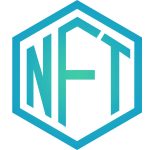 A news item popped up that announced a dealer is selling Non-Fungible Tokens (NFT) for 13 rare ancient coins. Following the news, collectors ask if NFTs should be part of numismatics.
A news item popped up that announced a dealer is selling Non-Fungible Tokens (NFT) for 13 rare ancient coins. Following the news, collectors ask if NFTs should be part of numismatics.
To answer the question, we must define the NFT. An NFT is a piece of data created using the complex math of cryptography to make it unique to tie it directly to the owner and the item. It is non-fungible because it represents a one-to-one relationship between the owner and the asset. An asset is fungible because it is interchangeable. A coin can be a fungible asset.
A token is an object that represents something else. In numismatics, a token represents money. The NFT is a piece of data that represents the owner and its tie to the asset.
Are you confused? So is most of the market that has run face-first into this new allegedly fantastical concept of owning a piece of something.
But is it an NFT or cryptocurrency numismatics?
According to Merriam-Webster, numismatics is “the study or collection of coins, tokens, and paper money and sometimes related objects (such as medals).”
First, NFTs are not numismatics. NFTs are a deed of ownership. Deeds are not numismatics.
Cryptocurrency may be considered a related object by definition, but does it represent money or currency in any form?
Cryptocurrency is an asset. The asset is assigned a value based on market forces. Are those assets numismatics? No! Cryptocurrency is an asset that does not represent anything. It is a set of bits and bytes created using complicated math.
The creators of cryptocurrency use names similar to physical assets to influence a market. For example, crypto-mining is a series of calculations to find large prime numbers. Searching for large prime numbers is something researchers have been calculating since the discovery of computers. In college, I worked on a project that calculated the largest prime number held at the time.
Today, someone decided to sell the idea of this complex math to calculate a series of prime numbers within constraints. Cryptocurrency is buying the number stored in something called a digital wallet. Owners of these numbers can trade them the same way you can trade stock or your car to a dealer.
Cryptocurrency is not legal tender. A governing authority does not authorize it. It is also not representative of anything except mathematics.
There is nothing in the definition of the trade of numbers to make it part of numismatics.
And now the news…
 → Read more at artnews.com
→ Read more at artnews.com
 → Read more at einnews.com
→ Read more at einnews.com

